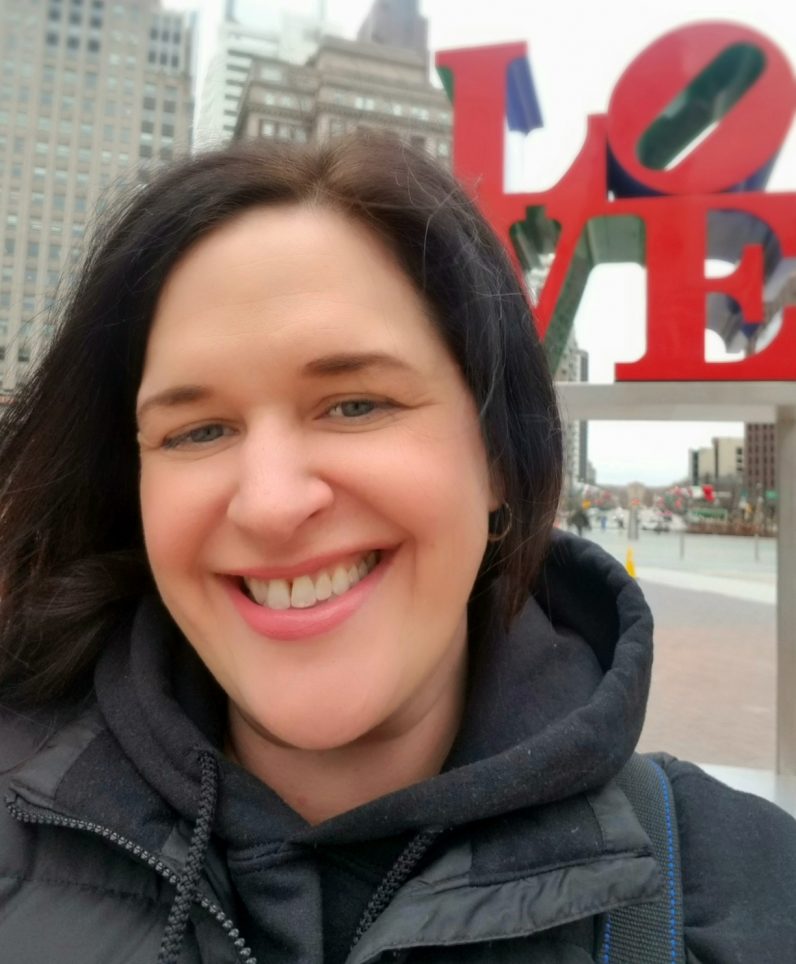Domestic abuse survivors who are rebuilding their lives face additional challenges during the coronavirus pandemic, said one archdiocesan outreach worker.
“If I have a strong trauma history, and now I’m stuck and confined inside, I’m going to be more likely to want to act out,” said Kate Baumgardner of Catholic Social Services (CSS).
(Related: Domestic violence ‘a pandemic within a pandemic,’ says Catholic psychologist)
Baumgardner oversees a transitional housing program for women and children who have suffered domestic violence. Located within the five-county Philadelphia area, the ministry provides 18 furnished apartments to single parents and their children.
[hotblock]
Residents are referred to Baumgardner’s team by the city of Philadelphia’s Office of Homeless Services, as well as emergency shelters and agencies such as Women Against Abuse.
While in the apartments, the women pay 30% of their income (generally derived from public assistance) based on a fair market rental evaluation. An additional 20% of their funds are directed to savings, which residents receive at the end of their 12-month stay.
Program staff help residents to develop a long-term housing plan, acquire life skills and reclaim their self-esteem through mental health counseling.
But even while physically separated from the abuser, a victim of domestic violence can still be in danger, said Baumgardner.
Memories, anxieties, and fight-or-flight responses to everyday occurrences can trigger self-destructive actions. One resident, diagnosed with post-traumatic stress disorder, often becomes agitated when Baumgardner and her team knock on the door for a wellness check.

Kate Baumgardner of archdiocesan Catholic Social Services said that the domestic abuse survivors she assists face additional challenges to stay safe during the coronavirus pandemic. (Photo courtesy of Kate Baumgardner)
“The abuser can still be inside them, which is why we’re working so hard to assist them,” Baumgardner said.
Like all CSS outreaches, the transitional housing program relies on a trauma-informed approach, which takes into account the impact of past damaging experiences on present behavior. For the women served by Baumgardner and her team, the internal clock is often years behind.
“If you start getting abused at a young age, in many ways your development – sexual, emotional, psychological – often stops at that point,” said Baumgardner. “So many of the women in our residences are actually tweens in that respect.”
Given that fact and the sense of isolation resulting from coronavirus stay-at-home orders, survivors may find themselves flaunting public health directives and “just rolling out to visit” friends and family, she said.
At the same time, loved ones can provoke a profound sense of shame, which Baumgardner observed is “huge across the board” with survivors of domestic violence.
“Often, you don’t know how to have healthy relationships, whether it’s with an intimate partner or parent or sibling,” she said. “Everybody broke you down physically or emotionally.”
Sometimes, the destructive criticism can be seemingly well-intended, she added, especially when family and friends “ask why you stayed with an abuser” in the first place.
That shame is particularly evident in the one in 10 men who have been victims of domestic violence, she said, noting that two of the 18 single parents currently in the CSS program are male.
[tower]
As stay-at-home orders remain in place, Baumgardner said she and her colleagues are redoubling their efforts to keep program residents “safe and connected.”
CSS arranged for the apartments, along with a community center used by the program, to be professionally deep cleaned. With donations from archdiocesan Nutritional Development Services and the nonprofit Caring for Friends, Baumgardner has started a small food pantry to stretch the residents’ food budgets, while ensuring families have plenty of diapers.
She’s also addressing the digital divide – the inequality in access to internet technology and devices – that the pandemic has exacerbated among many low-income families.
“Most of our clients have cell phones, but not smart phones,” she said. “I want to get every parent a tablet so they can meet with their case managers and attend online parenting classes.”
Although some students have received devices through their schools, “we can’t have a family of four huddle around one kid’s Chromebook,” said Baumgardner. “We all need a screen right now.”
Internet signal strength can vary among the apartments, and Baumgardner said she is seeking funding to enhance connectivity.
In the process, she and her staff remain focused on the most essential source of connection, she said.
“When you’re a domestic violence survivor, you have to undo so many things to love yourself again, and to accept help is so hard,” said Baumgardner. “But we’re all together in this loop.”
***
If you are experiencing domestic violence and are in immediate danger, call 911.
Additional assistance is available through the following:
U.S.
National Domestic Violence Hotline
800-799-7223 (800-787-3224 TTY)
24/7 support in more than 200 languages
VAWnet (National Resource Center on Domestic Violence)
Hotline: 866-723-3014
https://vawnet.org/news/preventing-managing-spread-covid-19-within-domestic-violence-programs
Catholics for Family Peace
National Catholic School of Social Service, The Catholic University of America
http://www.catholicsforfamilypeace.org/
Philadelphia
Philadelphia Domestic Violence Hotline
866-732-3014 (24/7 support)
Congreso de Latinos Unidos Latina Domestic Violence Program
216 W. Somerset Street, Philadelphia, PA 19133
215- 763-8870 ext. 1353
Lutheran Settlement House
1340 Frankford Avenue, Philadelphia, PA 19125
https://www.lutheransettlement.org/
Valley Youth House
1500 Sansom Street #300, Philadelphia, PA 19102
215-925-3180
https://www.valleyyouthhouse.org/covid-19-resources-for-youth-families/
Women Against Abuse
100 South Broad Street, Ste 501, Philadelphia, PA 19110
215-686-7082
https://womenagainstabuse.org/
Bucks County
Various resources:
http://www.buckscounty.org/LivingAndWorking/Services/domestic-violence
Chester County
Domestic Violence Center of Chester County
https://www.dvcccpa.org
Delaware County
Domestic Abuse Project of Delaware County
https://www.dapdc.org/
Montgomery County
Domestic Violence Legal Network
https://www.montcopa.org/156/Domestic-Violence-Legal-Network
PREVIOUS: La Salle’s student-led projects help in virus research, 3D printing
NEXT: Parish ministers, NDS staff risk lives to feed the burgeoning poor


Share this story